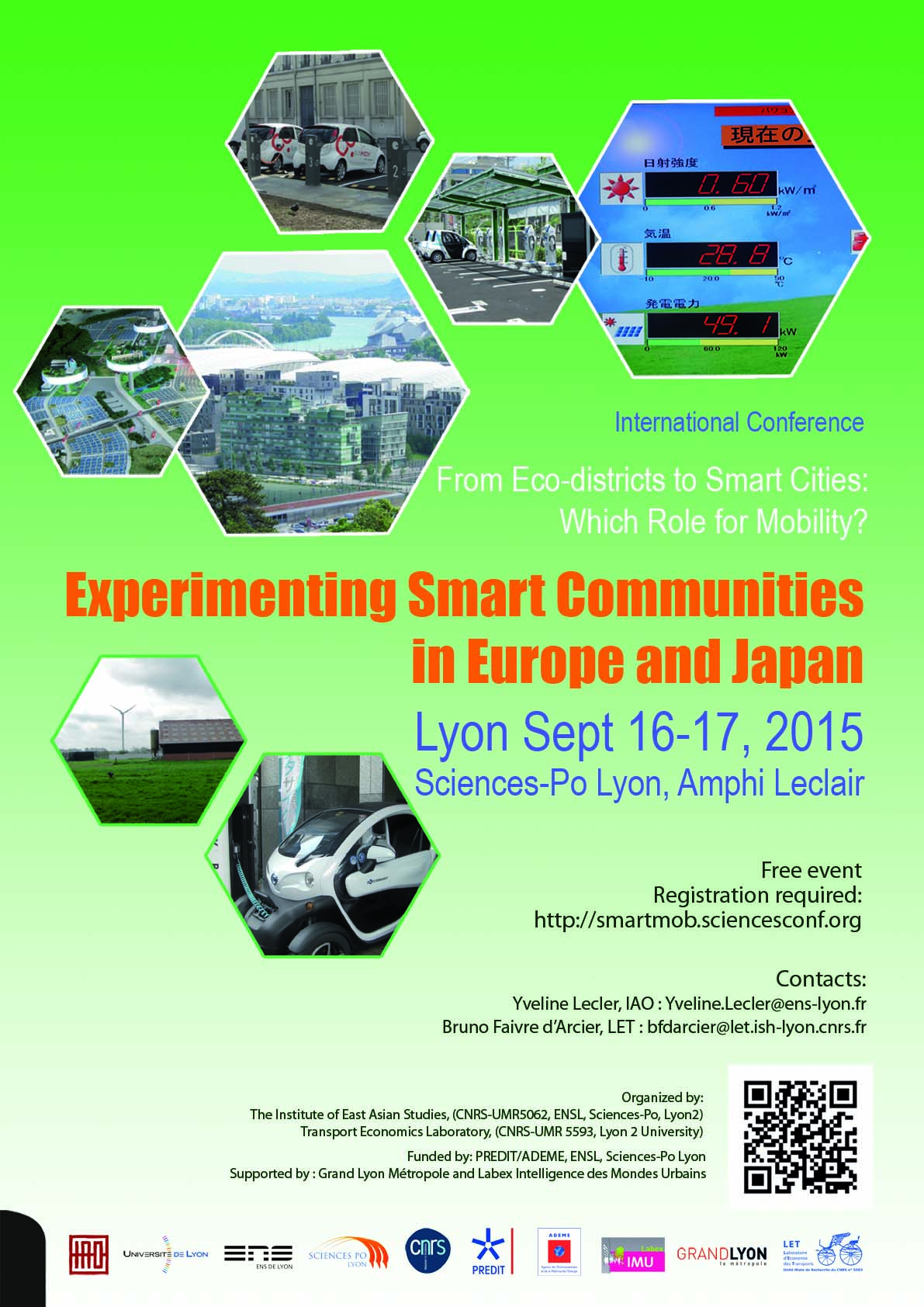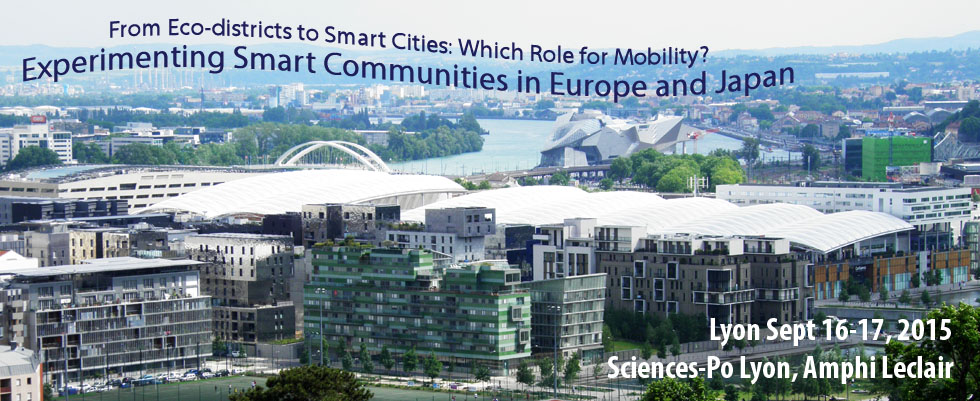ATTENTION: le programme a été modifié en août 2015
International Conference
Venue: Amphi Leclair, Sciences Po Lyon,
14 avenue Berthelot, 69007 - Lyons

Attempts to create low carbon or more energy efficient cities are not new as evidenced by many sustainable or eco-districts (mainly in residential areas) achievements in various European countries. Japan too has seen several programmes to support the development of sustainable cities.
Today, the development of smart-grids marks a new step forward in the management of energy. The uncertain and timely varying production level of electricity from renewable sources makes it generally difficult to stabilize the power grid. Smart grids open up interesting prospects for a better use of local energies. Linking energy and urban challenges, “smart communities” experiments aim to test out technologies (including that of the smart grid) in limited areas, seeking ways to co-ordinate them while at the same time collecting data that will inform solutions which, ultimately, could be extended to cover entire cities. Their focus is on creating energy-efficient buildings and introducing energy from renewable sources (solar, wind, biomass and in Japan, hydrogen). At the same time, they address issues of lifestyle changes needed to reduce energy demand. Thus citizens will be called upon to make changes in the ways in which they use energy, by modifying and adapting mobility and energy consumption to information received almost in real time.
This at any rate is the goal of Japan’s “Demonstration of Next-Generation Energy and Social Systems” programme launched by the Ministry of Economy Trade and Industry (METI) which has given birth to “Smart Communities”. Under the supervision of NEDO, it has also initiated several experiments abroad including that of the Lyon Confluence district.
The “Smart Communities” approach integrates the transport question and is not limited to the energy management of buildings. The experiments underway draw upon the expertise of many partners including car makers -- Toyota, Nissan, Honda and Mitsubishi -- who have an interest themselves in integrating hybrid and electric or even fuel-cell vehicles into this broad framework of energy management. Several concepts are being tested out, among them the use of electric vehicle batteries as a storage resource for renewable energies, not only charging energy but also discharging it into buildings. Another idea is to promote EVs for use by individuals, companies (for their fleets) and even in car-sharing services. Mobility needs can also be met through multimodal information systems that encourage greater use of public transport and walking in order to reduce electricity consumption and the emission of greenhouse gases.
Whilst the European experiments in Lyon, Malaga and Manchester are ongoing with NEDO support, the "Smart Communities" programme in Japan was set to end in March 2015. The purpose of this workshop is to present the Japanese Smart Community programme and discuss its main outcomes in the different areas of energy management, transport and mobility initiatives, comparing those outcomes with those in the Lyon confluence district as well as in other cities such as Malaga in Spain, Manchester in the UK and Los Alamos in the USA. The workshop will be based on the research conducted by IAO and LET within the framework of the PREDIT programme and is financed by ADEME.
Five sessions are planned. The first will discuss current policies on energy management in Japan and in France and examine their evolution in the context of each country. The second session will focus on transport and mobility in cities involved in every type of experiment, especially experiments promoting electric mobility and new services (car-sharing, information systems and so on). The third session will present the main characteristics of the 2010-2015 Japanese “Next Generation and Social System Demonstration” developed by the METI in Japan’s four “Smart Communities”. The fourth session will present the Lyon Smart Community project in the Confluence district while the last session will look at some other European and US examples of smart communities.


 Chargement...
Chargement...